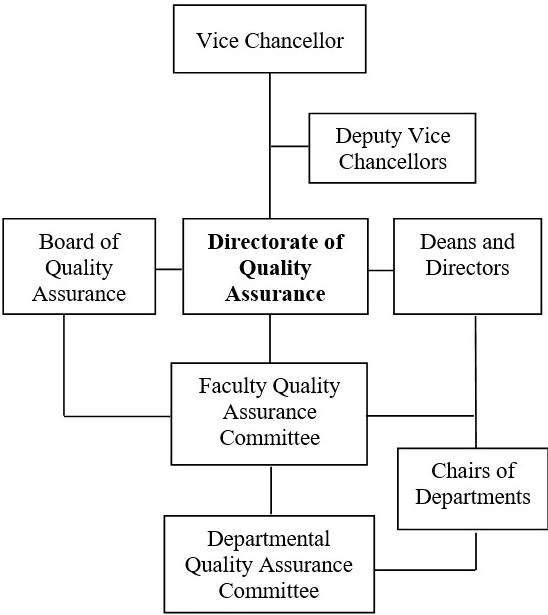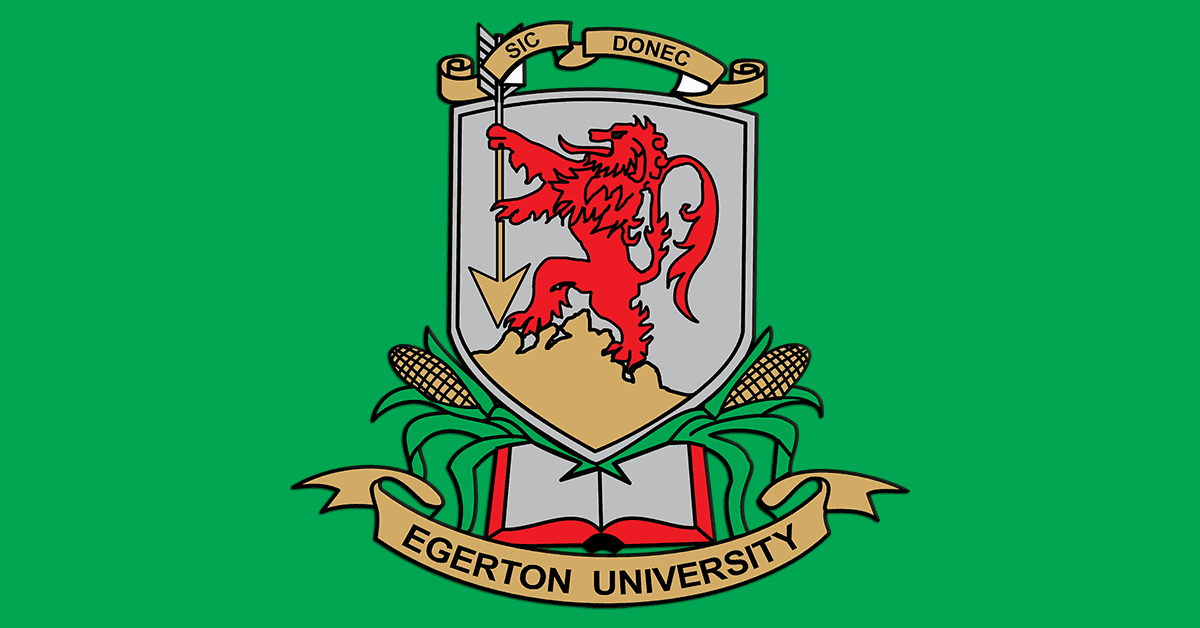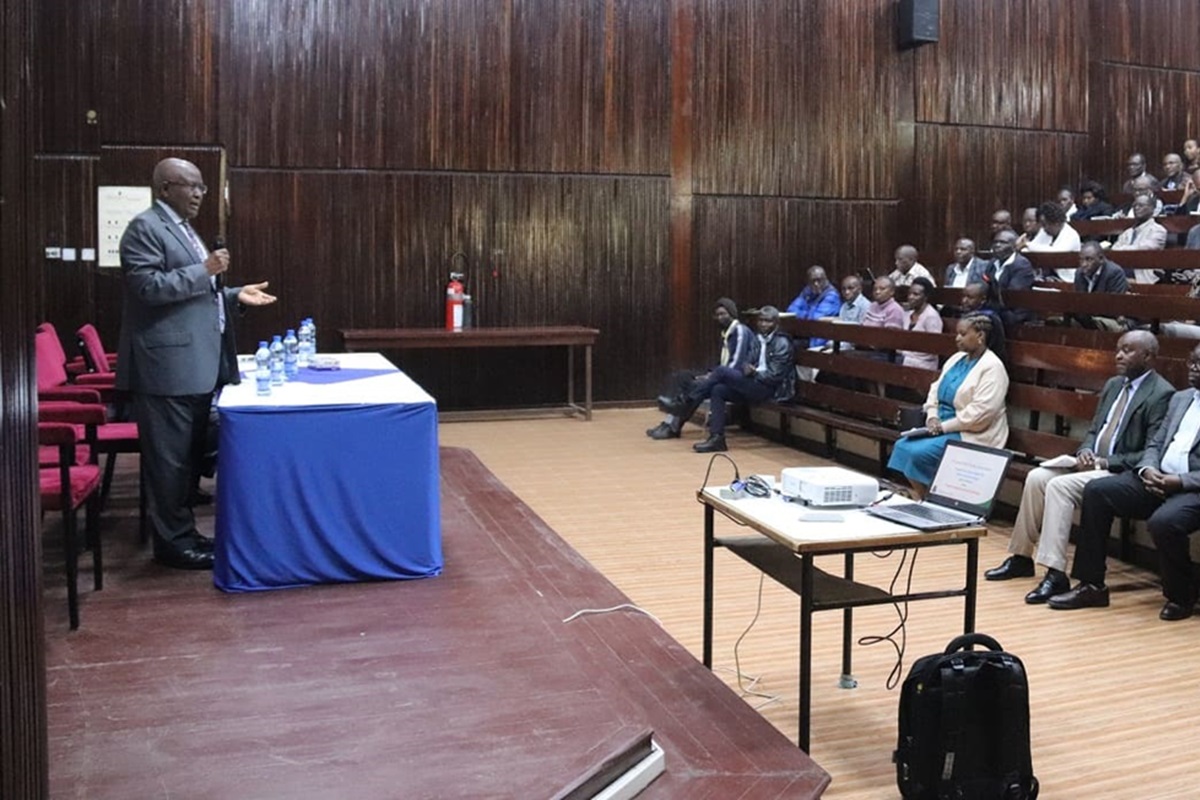
Directorate of Quality Assurance
The Directorate of Quality Assurance (DQA) was established in the University in June 2005, following recommendations of a Senate Committee that was set up to review the academic standards, in light of the University’s expansion. Besides, the tremendous growth in the demand for higher education has resulted in rapid growth in the number of Universities and an increase in the diversity of academic programmes. However, the un-matched growth of institutional infrastructure and other related resources has brought the quality of education into question.
Quality assurance and continuous improvement are fundamental to the mission of Egerton University. DQA therefore, has primary responsibility of assuring the standards and enhancing the quality of its entire academic and research provision so as to safeguard the integrity of the academic awards of the University.
Vision
The University’s vision is to be:
A world class University for the advancement of humanity.
The DQA’s vision is to be:
A Centre of excellence in the enhancement of quality standards in the University.
Mission
The mission of the University is:
To generate knowledge and offer exemplary education and training to society for national and global development.
The mission of the DQA is:
To ensure and enhance standards and quality of the University’s entire academic provision and research.
Mandate
The overall mandate of DQA is to promote high standards through maintenance and continuous improvement of the quality of academic programmes and research, using student and stakeholder feedback and benchmarking against best practice. Specifically, DQA shall:
- Coordinate the development and review of quality assurance (QA) policies, procedures and operational manuals, as well as instruments for use in internal evaluations.
- Monitor and review academic programmes and research to ensure maintenance and continuous improvement of the quality.
- Monitor and enhance the quality of teaching, learning and research experiences through course, teacher and research evaluations.
- Oversee the implementation of recommendations from internal and external evaluation of academic programmes.
- Monitor and recommend teaching and research support services for students and staff aimed at enhancing academic and research quality.
- Coordinate tracer studies and stakeholder surveys on the quality of the University’s academic programmes, products and services.
- Develop and sustain a culture of continuous academic and research quality improvement among members of the University community.
- Ensure compliance with statutory legislations and University standards on QA matters.
- Provide advice and guidance to the University organs on quality assurance matters.
Organizational structure of the DQA
The University’s Quality Assurance system mainly consists of a Directorate (DQA) and Board of Quality Assurance (BQA). The Directorate, headed by a Director who reports to the Vice-Chancellor, is guided by the BQA and works closely with Deputy Vice Chancellors, Deans, Directors and Chairs of Departments (CoDs). The membership of the BQA comprises of representatives from faculties and other University units and is supported by the faculty and departmental quality assurance committees.
The Directorate usually presents its reports to Senate, University Management and sometimes to the Audit, Governance and Risk Management Committee of Council.

Some of the activities of the DQA
Evaluation of Programmes
Programmes that have undergone a full cycle of implementation are required to undergo self-assessments.
The Directorate uses Inter-University Council for East Africa (IUCEA) approved handbooks to undertake programme self-assessments.
Deans of Faculties, in consultation with CoDs, identify programmes that are due for evaluation and forward them to DQA. The Directorate conducts training for Departmental teams on programme self-assessment process, before they undertake the exercise. The teams prepare a self-assessment report (SAR) for each programme which is discussed in Department and Faculty prior to submission to the DQA. The SAR is usually validated by external peer reviewers. The findings of the assessment are used in the review of the programme.
Course Evaluation
Every course and lecturer must be evaluated at least once every year using teaching effectiveness evaluation (TEE) and practical instruction evaluation (PIEE) questionnaires. The DQA analyses the questionnaires and provides feedback to the lecturers. The results are also used to identify lecturers for recognition.
Analysis of External Examiners’ reports
Departments invite external examiners (EE) to examine their examinations. Each EE prepares a report which is submitted to the Vice-Chancellor. All the reports are forwarded to DQA for analysis and preparation of a synthesized summary report which is presented to Senate. The recommendations of the report once approved by Senate are implemented by Faculties and Departments. Deans and CoDs update Senate on the implementation status of the recommendations.
Satisfaction Surveys
The Directorate conducts surveys to assess the satisfaction of stakeholders with the quality of services offered by the University as outlined in the service charter.
Questionnaires are administered to key stakeholders, including students, staff, alumni and employers, usually by an independent consultant. Data is analysed and a report on the satisfaction levels is presented to the University Management and other administrators of academic and service units. Recommendations are included in the annual performance contract workplan of the University to ensure implementation of improvement measures.
Academic Audits
The Directorate monitors compliance with statutory legislations and University standards on QA matters.
Teams trained by DQA conduct audits on various academic processes and procedures in Faculties and Departments, and they present a report of their findings to DQA. The reports are then presented in Senate for discussion and approval, to enable implementation of any recommendations.
Advice and guidance on quality related matters
The Directorate provides advice and guidance on quality related matters to all University sections/units. It is also the initial point of contact for stakeholders interested in matters of academic and research quality.
Contact:
For more information please contact;
Director
Directorate of Quality Assurance
Egerton University
P.O. Box 536-20115 Egerton, Kenya
Phone: +254-(0)51 2113349
Email: dqa@egerton.ac.ke







